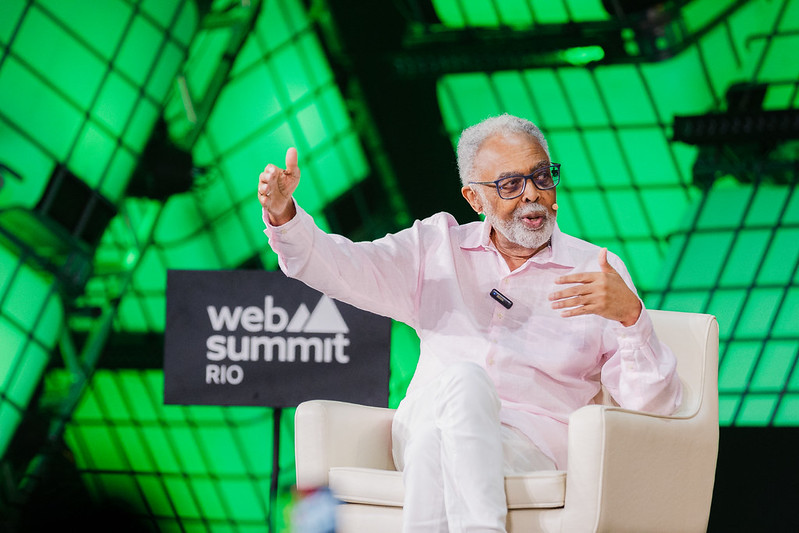São Paulo, Brazil – Between April 15 and 18, Rio de Janeiro hosted the second edition of the Web Summit, one of the largest innovation and technology events in the world. Web Summit Rio gathered more than 34,000 people, including 500 speakers and more than 1,000 startups, to discuss the future of technology.
One of the event’s main goals is to create software that improves conferences and enables meaningful connections between the CEOs, founders, investors, politicians, cultural figureheads and members of the media who are reshaping the world. With many speakers eager to share expertise, the event provides for unparalleled networking opportunities.
“We want you to meet people and meet businesses. We want you to have opportunities, because the people who are changing the world are here,” said the founder and CEO of Web Summit, Paddy Cosgrave.
According to Rio de Janeiro Mayor Eduardo Paes, the second edition of Web Summit Rio confirms the city’s spot as the capital of innovation in Latin America. In six years of hosting the event (between 2023 and 2028), Paes estimates an impact of R$1.5 billion (USD $300 million) on the city’s economy.
“We want innovative solutions to build a city ready for the future. We believe that technology and innovation are key elements in the economy, creating jobs and reducing inequality,” said the mayor during his speech at the event.

Among the other speakers, there were Brazilian celebrities, such as the singer Gilberto Gil, the president of Google Brazil, Fábio Coelho, and the Minister of Entrepreneurship, Microenterprise and Small Businesses, Márcio França.
The event also brought together representatives from big companies such as BYD, Nvidia, Mercedes Benz and TikTok, as well as startups and media companies.
Fintechs
The speakers show how the technology sector in Brazil is strongly linked to the financial sector. Executives from big private banks, such as Nubank, Itaú, Bradesco, and public bank Banco do Brasil, as well as payment companies and fintechs participated in the event.
One of the startups that presented in Rio was Belo, a pioneering personal finance app developed in Argentina designed for the evolving remote work landscape. Founded in 2020, Belo is a digital wallet designed to empower the global workforce of the future.

Tailored for freelancers and remote workers, it streamlines the process of receiving international payments in many currencies. Belo offers the flexibility to save in stable currencies and provides an intuitive interface for everyday financial transactions.
According to Manuel Beaudroit, co-founder and CEO of Belo, Web Summit Rio is a great opportunity to expand connections and understand more about the Brazilian market to deliver the best product to the clients.
Belo has already taken an important step towards growing in the country by joining the PIX instant payment system, created by the Central Bank of Brazil in 2020 and used daily by millions of Brazilians.

“What fintechs have done in recent years is digitize as much of users’ lives as possible. You no longer need to physically go to a bank to open an account or receive money, which helps professionals who work for foreign companies and also reduces costs for the companies themselves,” Beaudroit told Brazil Reports.
He said that, by focusing on freelancers and remote employees, Belo sees the worker of the future as something global, and no longer local. “Fintechs go further than local players and we believe that’s the future of work relations.”
Just like Belo, Web Summit Rio also saw presentations from over 90 fintechs from different countries, proving the strength and growth of fintechs around the world.
This article originally appeared on Brazil Reports, part of the Latin America Reports network of publications.
Disclosure: This article mentions a client of an Espacio portfolio company.











